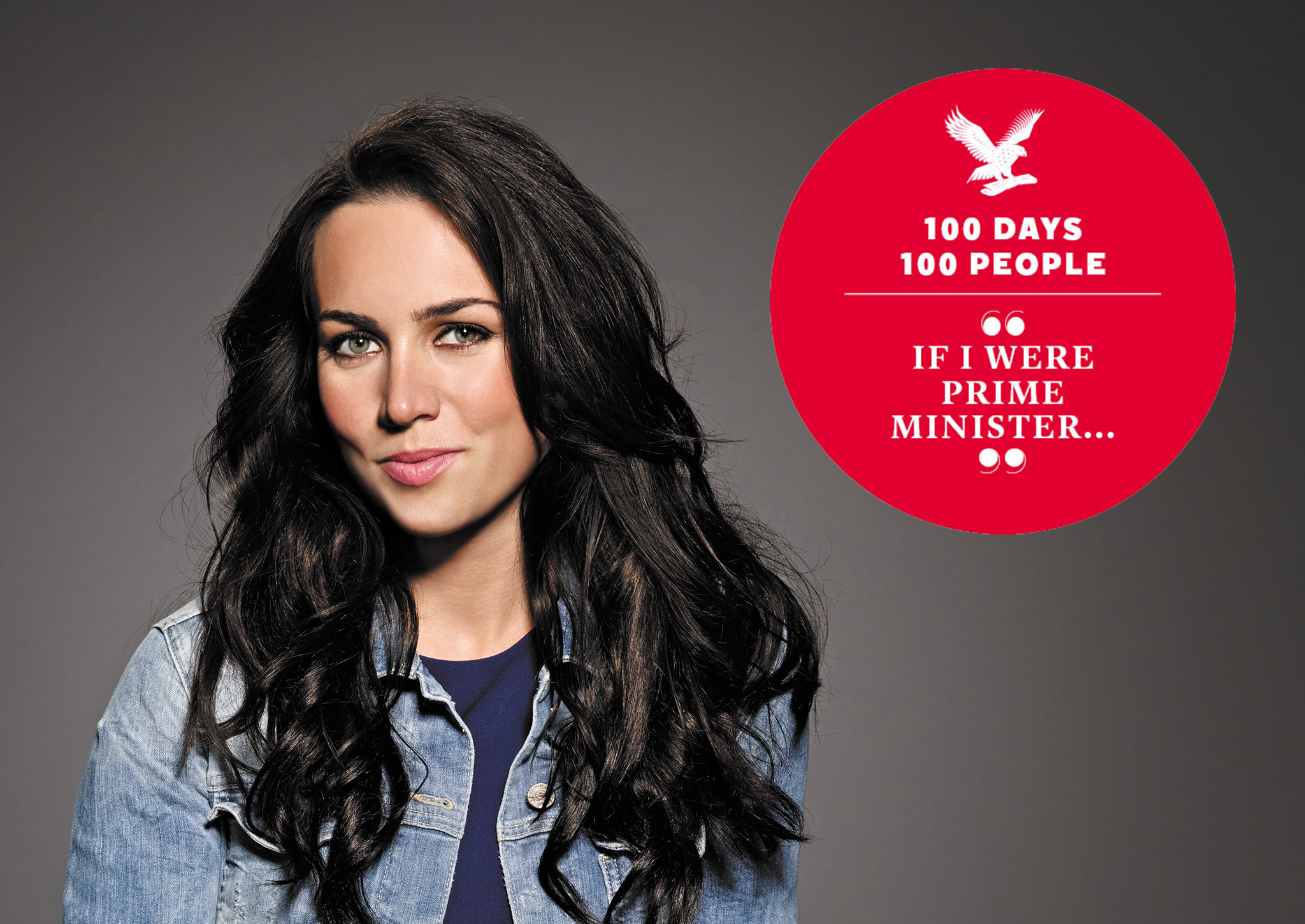If I were Prime Minister: Rational decision-making classes would be a part of the national curriculum
Our series in the run-up to the General Election – 100 days, 100 contributors, but no politicians – continues with the poker player and TV presenter

Your support helps us to tell the story
From reproductive rights to climate change to Big Tech, The Independent is on the ground when the story is developing. Whether it's investigating the financials of Elon Musk's pro-Trump PAC or producing our latest documentary, 'The A Word', which shines a light on the American women fighting for reproductive rights, we know how important it is to parse out the facts from the messaging.
At such a critical moment in US history, we need reporters on the ground. Your donation allows us to keep sending journalists to speak to both sides of the story.
The Independent is trusted by Americans across the entire political spectrum. And unlike many other quality news outlets, we choose not to lock Americans out of our reporting and analysis with paywalls. We believe quality journalism should be available to everyone, paid for by those who can afford it.
Your support makes all the difference.I'm a scientist at heart and have made much of my living from playing poker, a game of tough decisions. I believe that the ability to think rationally is one of the human species’ greatest attributes, a tool that could and should enable us to survive and flourish in a way that is sustainable for as many lives as possible.
So if I were Prime Minister, I would make classes in rational decision-making a compulsory part of the national curriculum. Too little focus is given in mainstream education on how to make sound decisions, and the various cognitive biases (ie illogical deviations from rational thought) that we all regularly fall victim to. As a poker player I've learned the hard way that poor decision making, be it from ego, stubbornness or superstition, can be costly both financially and emotionally.
When these common errors in decision-making are scaled up to the big issues such as the environment, economic stability or the use of our public funds, the results can be disastrous both in the short and long-term.
Rational decision-making in this context means finding the strategies that generate the best solutions for as many as possible. Any person with political influence, which includes voters, should always follow the thought process of:
1) What are the biggest problems out there?
2) What are the interventions that can solve as many of them to as great an extent as possible?
These answers should then be their focus. The major mistake made by both politicians and voters is that they often prioritise political issues in irrational ways. These could be judgements clouded by personal experiences, a blind wish to be re-elected or desire to adhere to tradition.
Adhering to tradition for tradition’s sake is an example of the “Status-Quo Bias”, which is our preference to keep things as they are, even if we are given information that it is not the best choice. For example, a recent study found that many retirement plan holders decided to hold onto an existing fund, despite being told it was no longer the most profitable plan for them. From the outside this seems crazy, but when we’re immersed in a situation we find it harder to make the switch than we should.
This bias has reared its ugly head throughout history with topics such as the abolition of slavery and women’s right to vote. No one in their right mind opposes these topics now, but back then these changes received a disconcerting amount of resistance. This raises the question of what present day issues we’re facing that people in the future will look back at and say: how could they resist this?
One obvious present-day issue is public attitudes towards climate change: those who oppose preventative action are often doing so because they believe it is not 100 per cent happening and therefore isn't worth the cost and effort, or because they do not value future lives compared to current lives.
The problem with this is that the potential socio-economic downsides of inaction (mass suffering, global chaos and so on) massively outweigh the downsides of present-day action, even if you assume a low probability of them happening. The error in thinking is that even if a current life is considered, say 10 per cent worth of a future life, the sheer number of future lives is so astronomically larger than those alive now that their interests must rationally be taken into account.
If rational thinking was taught comprehensively from an early age, then we would create a generation of voters more equipped to evaluate both personal and political issues, and thus vote in similarly rationally minded politicians able to act in the most effective way for their people and the generations to come.
Liv Boeree is a poker player and TV presenter with a background in astrophysics. She is a co-founder of the charitable initiative Raising for Effective Giving (www.reg-charity.org), which motivates poker players to donate winnings to the most impactful causes.
Join our commenting forum
Join thought-provoking conversations, follow other Independent readers and see their replies
Comments